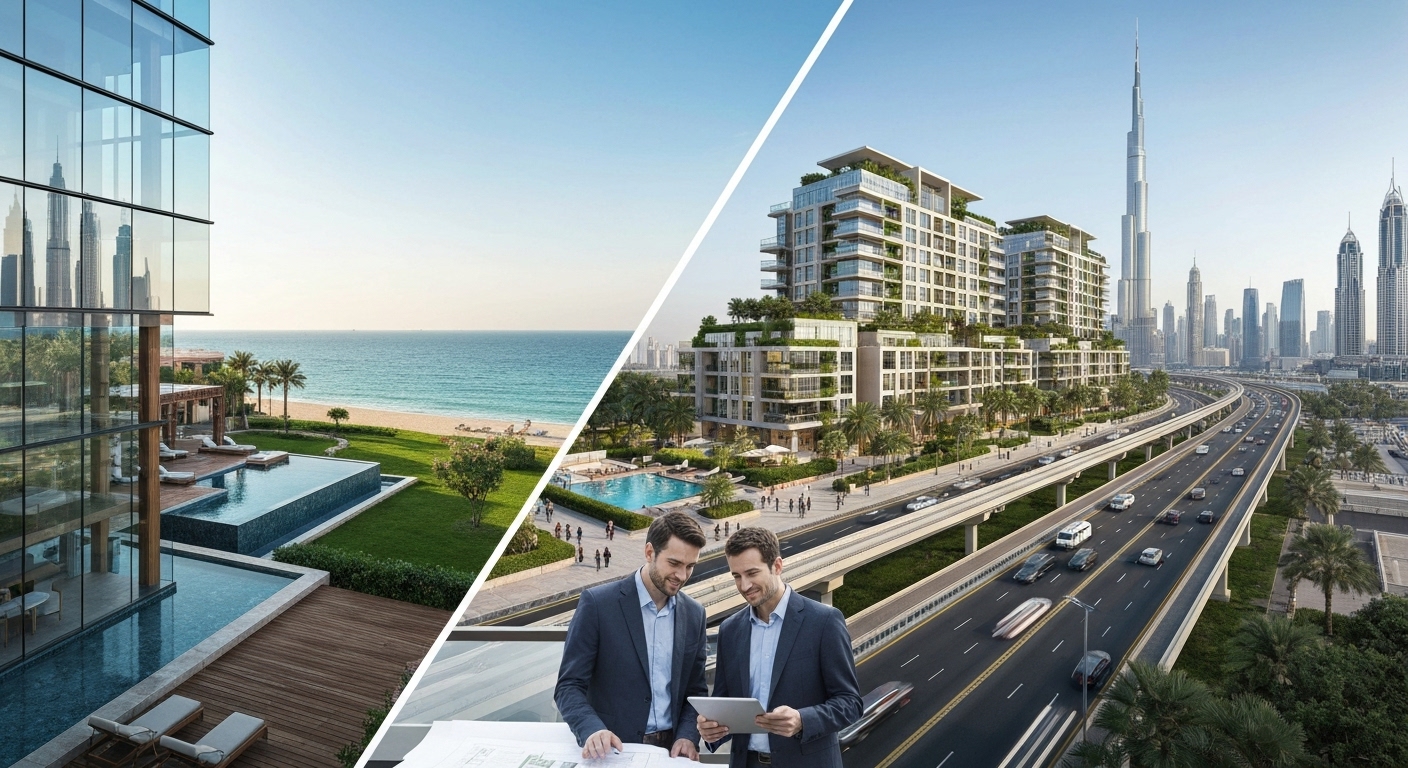Foreign investors consistently ask: What is the difference between freehold and leasehold for a foreign investor in Dubai? The answer is crucial for anyone considering a property investment in this dynamic city. In this guide, we will break down the legal definitions, long-term implications, and investment considerations for both options—helping you make the most informed decision.
Understanding Property Ownership in Dubai: A Foreign Investor’s Overview
Dubai has become a magnet for international investors thanks to its transparent real estate market, investor-friendly regulations, and enviable lifestyle. The emirate offers two main types of property ownership for foreigners: freehold and leasehold. Each structure comes with its own legal nuances and practical impact on ownership, resale, and inheritance rights. Since local and international buyer trends are converging in Dubai, understanding these property models is key, whether your priority is ROI, personal residency, or flexible exit strategies.
Freehold vs. Leasehold: Defining the Core Differences for Foreigners
For a foreign investor in Dubai, the core difference between freehold and leasehold property lies in the duration and depth of your rights over the property.
Freehold Property: As a freehold owner, you secure full legal ownership of the property and the land it occupies—indefinitely and without time restrictions. You have the right to sell, lease, or bequeath the asset. Freehold properties are concentrated in designated zones like Dubai Marina, Downtown Dubai, Palm Jumeirah, and Jumeirah Village Circle.
Leasehold Property: With a leasehold model, you purchase the right to occupy or sub-lease a property for a defined period (typically 30 to 99 years). You do not own the land itself; ownership ultimately reverts to the freeholder after the lease expires, unless renewed. Leasehold properties are more common in older areas or master communities not designated as freehold.
Benefits and Drawbacks of Freehold Property in Dubai for Foreign Investors
Freehold ownership empowers foreign buyers with permanence and flexibility. Key advantages include potential for long-term capital appreciation, complete freedom to resell or rent, and straightforward inheritance procedures under Dubai Land Department laws. The promise of full ownership also makes it easier to access home financing and mortgage products from local lenders—bolstering future marketability.
However, premium locations and top-tier amenities mean that freehold properties usually carry higher purchase prices. Maintenance and service charges can also be significant. Still, for those looking to settle in Dubai long-term or secure a robust asset for family advancement, the benefits often outweigh the costs.
Advantages and Considerations of Leasehold Property in Dubai for Foreign Investors
Leasehold property can be attractive for investors seeking lower entry prices and a foothold in established or non-freehold districts. Leaseholds may enable access to unique heritage buildings or central neighborhoods otherwise unavailable to foreign investors. Leasehold buyers often face lower upfront costs and have a predictable, contractually defined tenure.
The main consideration is long-term asset security. When a lease expires, rights revert to the landowner—potentially affecting resale value as the expiration date approaches. Some banks are more cautious in lending against leasehold assets. If your aim is generational wealth or flexibility to exit at any time, these factors must be weighed carefully.
Example: Leasehold Renewal and Resale Impact
Consider a 99-year leasehold property in a desirable Dubai suburb. As the lease term lessens, potential buyers may be deterred by the diminishing tenure—especially if only a few decades remain. This “depreciating lease” effect can impact both price and resale potential, making long-term planning essential for leasehold investors.
Key Legal and Financial Implications for Foreign Buyers: Freehold vs. Leasehold
For freehold owners, Dubai law ensures the property can be transferred, rented, or sold to any party, domestic or international. Owners can benefit from residency visa programs and attractive payment plans. Leasehold contracts, on the other hand, must be scrutinized for renewal terms, maintenance obligations, and subletting clauses. Financially, freehold ownership is often perceived as lower risk and a better hedge against inflation or regulatory shifts.
Navigating Investment Decisions: Which Option is Right for You?
The ideal choice depends on your investment timeline, budget, and personal objectives. If long-term stability, heritage transfer, and open market resale matter most, freehold is likely the better option. If, however, your focus is short- to medium-term returns or rental yield without the need for perpetual ownership, leasehold may provide an attractive solution—especially in select Dubai communities.
Expert Advice and Next Steps for Foreign Property Investment with Danube Properties
Ultimately, the difference between freehold and leasehold for a foreign investor in Dubai comes down to ownership permanence, risk tolerance, and return expectations. Dubai’s property ecosystem is robust, transparent, and offers strong capital appreciation potential for both ownership models. For tailored advice and the latest opportunities in the city’s freehold zones, contact Danube Properties to navigate your Dubai investment journey.




